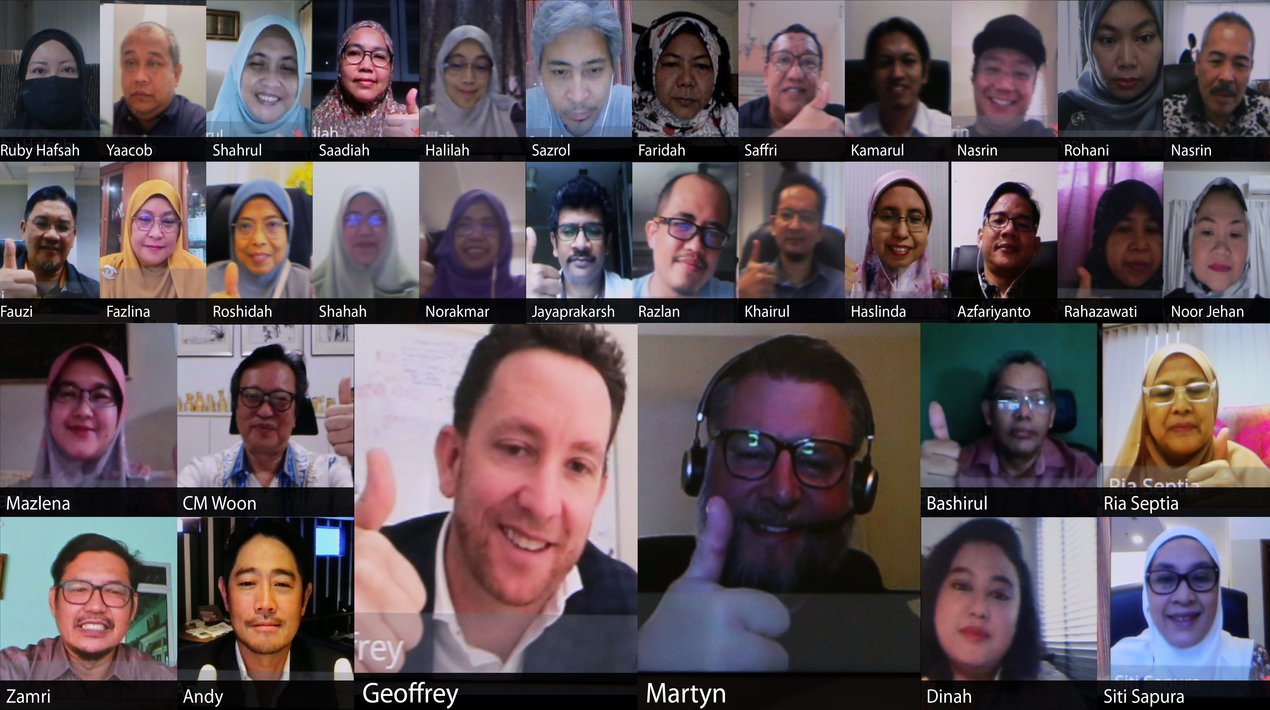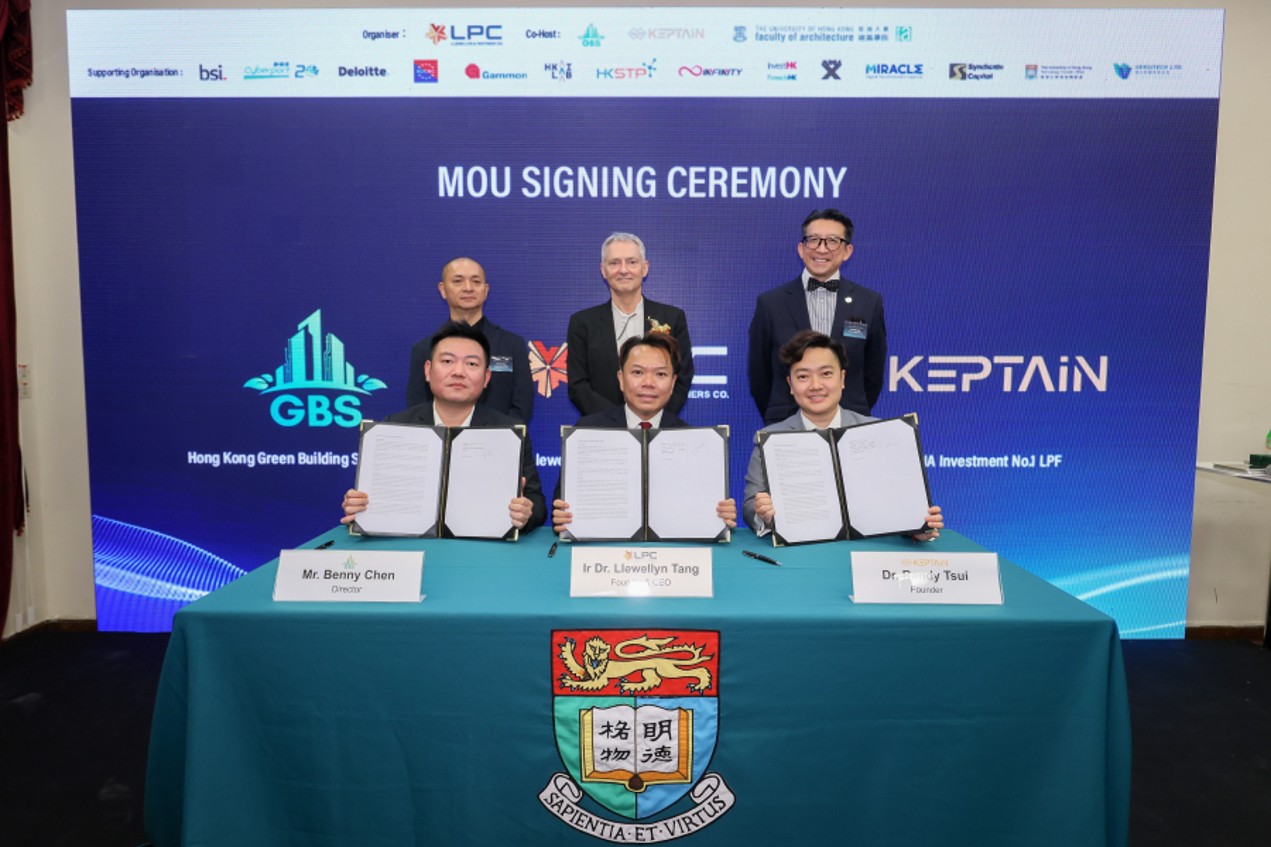
Government agencies around the world are implementing digital transformation projects and initiatives across the board to better citizen experience, satisfaction and experience while increasing efficiencies and reducing costs. While the digital economy has grown exponentially from 2020 onward as the pandemic forced businesses to go online and increase digital offerings, governments also had to provide online services.
The public sector had to accelerate digital transformation initiatives to ensure that citizens continue to avail essential and critical services seamlessly. These changes occur at all levels: national, regional, local and supranational. They impact issues such as public transportation and healthcare and other services that may be cross-cutting across various government agency areas – in regulated, semi-regulated or state-sponsored areas.
The global economy continues to endure severe challenges of the crisis and Malaysia is no exception. Malaysians from all social strata as well as workers in both the public and private sectors have not been spared. Entire industries faced upheaval and day-to-day life jas been upended.
The emergence of new technologies, data analytics and an increasingly VUCA environment alter expectations and modalities of the government mandate to deliver public services. The foundation for the country’s transformation towards an advanced digital economy has been laid out in the roadmap that has been created to make certain no Malaysian is left behind.
The Malaysia Digital Economy Blueprint – MyDIGITAL – is formulated to set the direction, outline strategies, initiatives and targets to build a solid foundation to drive the growth of the digital economy, including bridging the digital divide. It aims to ensure that the country is ready to embrace a digital future and seize opportunities that arise in the new normal. Goals include constructing infrastructure, facilitating innovation and establishing an ecosystem in which all contribute to raising living standards while driving digital transformation in the public sector – all to be done by increasing the adoption of digital technologies and utilising digital tools to improve efficiency and productivity.
This was the focal point of the OpenGovLive! Virtual Breakfast Insight on 5 August 2021 – a closed-door, invitation-only, interactive session with Malaysia’s top government agencies. The session, which had 100% of attendance, focused on how government agencies and organisations can optimise infrastructure and use data analytics to reduce costs, risks and complexities. It also explored the importance of data recovery in the event of a ransomware attack.
Finding Partners to Leverage Data and Technology

To kickstart the session, Mohit Sagar, Group Managing Director and Editor-in-Chief at OpenGov Asia delivered the opening address.
With the remote working models in play early into the pandemic, people have grown accustomed to access at any time on any platform with any device – courtesy of online businesses. E-commerce companies have embraced personalisation and have transformed themselves in a variety of ways including accessibility, options, ease-of-business, and security.
Referring to the framework of different government agencies, Mohit asks the question: What are the government’s initiatives or efforts for the implementation of the framework?
Companies use big data in their systems to improve operations, provide better customer service, create personalised marketing campaigns, and take other actions that, ultimately, can increase revenue and profits. Businesses that use it effectively hold a potential competitive advantage over those that do not as they can make faster and more informed business decisions.
Mohit acknowledged the importance of data availability, storage and processing for organisations as most services have been shifted online. Against this backdrop, cyber attacks and ransomware are the biggest problems that companies have to deal with.
Apart from technology and processes, Mohit emphasises the importance of teamwork in data security and recovery. Finding the right partners is essential when it comes to recovering critical data from organisations. Having competent partners who focus on data protection, data recovery and compliance requirements against a wide range of cyber threats allows businesses to focus on their primary tasks and key deliverables.
Digital Transformation Outpaces Risk Management

Andy Ng Vice President, Asia South & Pacific Region, Veritas shared a welcome address and spoke on how digital transformation outpaces risk management.
“Hearing from every sector of organisations as we embarked on this digital transformation, creates a transformation gap,” Andy Ng said. “This transformation gap can be addressed by the 4 Cs – Costs, Cyber, Cloud, and Compliance”.
Cybersecurity, which includes ransomware, is required for businesses to plan strategies to mitigate or prevent ransomware attacks. Figures indicate that 38% of organisations hit by a ransomware attack were offline for a week or longer.
Currently, 94 % of enterprise organisations have a multi-cloud strategy in place. According to a survey, 80% of enterprise organisations by 2024 are likely to overspend by 20% to 50% because they are unaware of mistakes made in cloud adoption.
As organisations collect more data across silos, managing data across these sources becomes increasingly important. Organisations need to standardise data management across clouds.
Andy firmly agrees that compliance and adhering to new data regulations are critical components of closing the transformation gap. According to the survey, by 2023, 65% of the world’s population will have their personal information protected by modern privacy regulations, up from 10% today.

Taking the session forward, CM Woon, Regional Director, Asia South, Veritas elaborated on the Malaysian blueprint framework; a key aspect of this roadmap is the digital transformation in the public sector.
While the current framework reflects changes and innovations in the global digital landscape, he conceded that the nation began digital transformation well before the pandemic.
An example of this is the development of Cyberjaya – a tech-dedicated city – which has a science-dedicated park as the core and forms a key part of the Multimedia Super Corridor in Malaysia.
With the acceleration, almost everything has pivoted online, and most services can be availed from the comfort of people’s homes. He agrees that across the globe, and in Malaysia, both the private and public sectors have come a long way. Keeping data as the foundation and security at the fore, he is optimistic that they will continue to grow.
In this entire scenario, CM Woon is convinced that the most fundamental element is data and says, “Without data, there will be no transformation”. He also assured the delegates that Veritas ensures the safety of its customers’ data and that they prioritise cybersecurity.
Tackling the Transformation Gap

The participants next heard from Geoffrey Coley, Director Strategy & Architecture, Asia South Pacific, Veritas who elaborated further on tackling the transformation gap.
Geoffrey agreed that a company’s digital transformation appears to outpace its ability to manage risks effectively and efficiently. This is corroborated by what senior digital executives share about data, the cloud and ransomware.
He emphasised that data availability is important because only 82 % of data has been changed in the last two years, implying that data security is crucial for organisations.
“Recovering more than one data-set or IT service in the event of a failure would be extremely challenging”.
Data protection and accountability measures cover a range of issues including adopting and implementing data protection policies, maintaining documentation of processing activities, recording and reporting personal data breaches and ensuring organisations have a data protection officer appointed.
With increased security being placed on how companies handle consumer data, not to mention a flurry of data privacy legislation, now may be the ideal time for the framework. According to a Veritas survey, most organisations have not kept up with the complexity that cloud computing provides, with organisations across the Asia Pacific adding more rather than less to it.
The ever-increasing demands of the business and users become more difficult to meet. While core systems have a longer lifespan, customer interaction platforms change more frequently. Data management, in particular, has emerged as a critical task in today’s IT environment.
Other important aspects of cloud computing are visibility, controllability, and measurability. According to Geoffrey, if an organisation cannot visualise how an IT service is composed and if they cannot control and measure it, the organisation may be at risk. Ransomware, multi-pronged attacks that capture an organisation’s data and systems, play a significant role in this.
Geoffrey stressed the word anomalous – deviating from the norm. It is critical in an organisation to protect against, detect and recover from any type of ransomware. Organisations can prepare for this by taking precautions to ensure that their data is not corrupted or lost and that normal operations can resume as soon as possible.
Data governance is best viewed as a function that complements an organisation’s overall data management strategy. Such a framework offers organisations a comprehensive approach to data collection, management, security, and storage and takes into consideration where, who and what is gathering the organisation’s data.
International Case Study – Digital Evolution Now

Martyn Wallace, Chief Digital Officer Digital Office for Scottish Local Government expanded on digital evolution and how COVID-19 has impacted it.
He felt that data is the lever that Scotland must pull to improve outcomes for citizens while simultaneously lowering costs. Service design for digital transformation elements is critical because organisations must make the right decision and start in the right direction, to begin with.
He then listed the three data buckets:
1) Understanding the data which includes historical data and data storage
2) Reacting to the presence of data – mobile devices, real-time data and connected devices (IoT) and
3) When the first two are being used, then an organisation can anticipate the future which brings them to the use of Artificial Intelligence and Predictive Analytics.
Communications channels, customer relationship management, knowledge management, robotic process automation (RPA), business intelligence and the Internet of Things are invaluable to an organisation.
COVID-19 has pushed organisations to derive richer insights by forcing them to “react to the present” as well as to combine data across partners. In keeping with this, the Scottish Government established a cross-sector data task force for citizens and other public sectors such as healthcare and education.
When it comes to ransomware attacks in Scotland, businesses and the government have taken a stand to not pay any type of ransom. They firmly believe that paying a ransom does not guarantee a successful outcome, nor does it protect networks from future attacks or prevent future data leaks. Contrarily, paying a ransom is likely to encourage criminality to continue to use this approach.
Interactive Discussion
After the informative presentations, delegates participated in interactive discussions facilitated by polling questions. This activity is designed to provide live-audience interaction, promote engagement, hear real-life experiences, and impart professional learning and development for participants.
The first question asked why digital transformation matters for the public sector. Well over half the delegates (58%) agreed that it improves government services. Over a quarter (27%) said it is to improve workflow efficiency and productivity. Over a tenth (12%) of the delegates indicated that it is to increase scope and quality for online services for better user experience and just 3% went with cost reduction.
The next query inquired about the key enablers of digital transformation. Half of the delegates said that the key enablers are speed of change for applications, data, and building/removing core business systems. A significant portion (41%) said they were driven by changing ‘rakyat’ (citizens) demands. Under a tenth (9%) said that it is operational cost savings.
Delegates were asked what the biggest challenges are faced by the public sector today when looking at digital transformation. Just under half (45%) indicated that their challenges are dependency or the need to integrate with legacy systems and/or technology. About a fifth (18%) felt it was cyber threats. Equally split at 14% was skills shortage to implement and operate technology and compliance to government regulations. About 9% voted that data management and protection was their biggest obstacle.
The fourth poll asked what factors delegates prioritise when evaluating new technologies. A strong majority (61%) indicated operational simplicity and product reliability. About a fifth (22%) said support for new and modern technology was a key consideration while 17% lower costs would be key.
The last question enquired about delegates key areas of interest and what they value more. About a third (38%) want ease-of-doing-business through a simplified technology consumption model. A quarter (24%) are looking for visibility into cross-system data and infrastructure to identify unexpected changes and potential risks. Under a fifth (19%) prize business resiliency through highly available applications and workloads. Similarly, another 19% value tools that deliver automation in areas like compliance and data availability.
Conclusion
Andy Ng and CM Woon both expressed gratitude to the delegates for attending the event and appreciated the robust discussion and keen insights.
The event revealed that government agencies are experiencing a digital explosion; increasing amounts of information are being produced and transmitted electronically, but the digital infrastructure supporting these operations is straining under the strain.
The pressure has exposed flaws in business processes, leadership strategy, training and recruitment efforts, reinforcing the notion that digital transformation is not fully understood, supported or directed as it should be. With limited budgets, agencies are forced to choose between equally important priorities such as data protection, mission expansion and workforce needs for the future.
A true transformation of procurement processes should be understood from a digital-by-design perspective, in which digital technologies are embedded from the start in the design, development, delivery and monitoring of procurement frameworks and processes.
Both Andy and CM Woon invited the delegates to reach out to them to explore ways that Veritas could help them in their digital journeys.





















